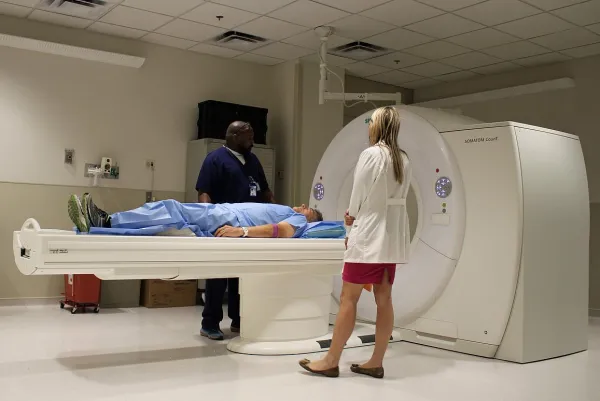NIH Intramural Blog Highlights Lung Cancer Screening Research
, by NIH Staff
Hormuzd A. Katki, Ph.D., senior investigator in the Biostatistics and Branch, and Anil Chaturvedi, Ph.D., senior investigator in the Clinical Genetics Branch, discuss their research on lung cancer screening on the NIH’s Intramural Research Program blog, I am Intramural. An excerpt of the post is presented below.
Eleven years ago, IRP senior investigator Hormuzd Katki, Ph.D., had a bit of an eureka moment during a press event announcing the results of the National Lung Cancer Screening Trial, which demonstrated that annual screenings cut the risks of dying from lung cancer in heavy smokers by 20 percent.
“It struck me as I read the trial results that not only was this a very important trial, but that it was possible that different people will have different benefits from lung cancer screening,” Dr. Katki remembers. “Even within this group of very high-risk smokers who were part of the trial, you can identify some people who get much more benefit than other people, and that has implications for who should be offered this kind of screening.”
As we observe National Lung Cancer Awareness Month this November, estimates predict more than 236,000 new cases of lung cancer will develop in the U.S. by the end of 2022 and 130,000 people will die from the disease. With a five-year survival rate under 25 percent, preventing it or catching it early is key to survival. To do that, regular screenings are necessary, but the risks of the computed tomography (CT) scans used to do them—including radiation exposure and potential erroneous false positive results—need to be balanced with the benefits. That’s where researchers like Dr. Katki and his long-time collaborator, IRP senior investigator Anil Chaturvedi, Ph.D., come in.
Read the full blog post on the I am Intramural blog from NIH.
